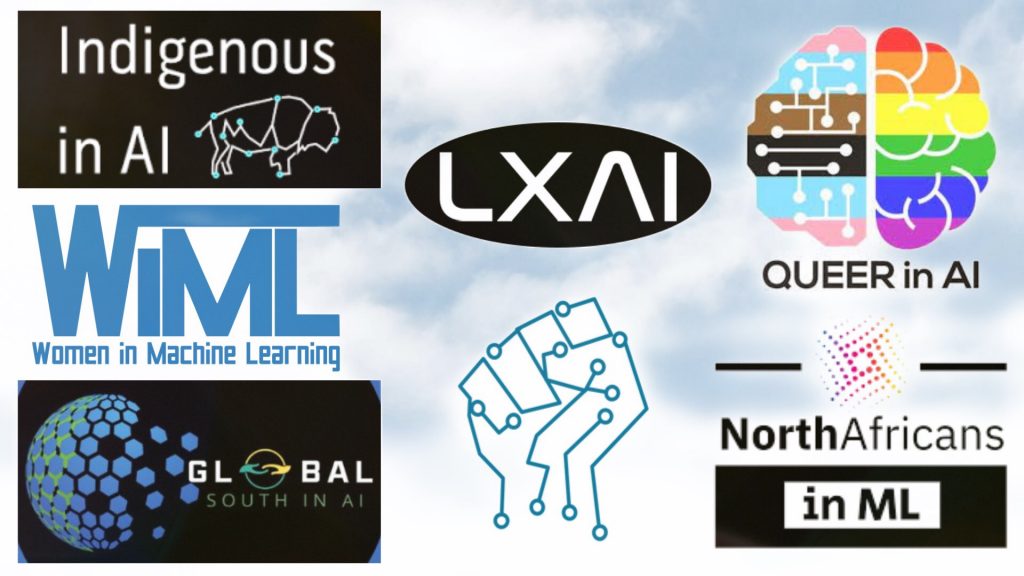
ΑΙhub.org
Affinity group round-up from NeurIPS 2022

Collage of logos from affinity groups, indigenous in AI, Women in Machine Learning, Global South in AI, LatinX in AI, Black in AI, Queer in AI, and North Africans in ML
It was a busy month for affinity groups at NeurIPS, with workshops from Black in AI, Queer in AI, LatinX in AI, Indigenous in AI, Global South in AI, Women in ML, and North Africans in ML. These workshops give researchers the opportunity to share their work, find support and make connections, and raise awareness of issues affecting their communities.
Here are some of our highlights from the workshops.
David Adelani presented his work on transfer languages – taking a model in one language and applying it to other languages. Transferring from one to another language can be tricky, especially when they use different structures or scripts. His work focused on named entity recognition, (e.g. people and place names, dates, organizations) and explored what factors improve cross language transfer for African languages. Key aspects included the creation of a diverse dataset, MasakhaNER, and the choice of language used for the transfer. (If you would like to learn more about David’s work, see also our interview with him.)
A Queer in AI panel hosted by Talia Ringer with Jon Cardoso-Silva, Martin Mundt (he/him) , Sara Beery, Shamini Kothari (she/they), shared experiences of being queer and a member of faculty. The conversation included how queerness influences their work and roles, to be or not to be out in academia, their hopes for the future, and insights on how these may differ across the globe.
At the Indigenous in AI workshop, Mason Grimshaw hosted a panel with Michael Running Wolf, Caroline Running Wolf, and Shawn Tsosie. They shared their experience of running the first Lakota AI Code Camp, where over three weeks students learned coding and AI from zero to create an app to identify local plants. The panelists talked about the importance of having something to take home, discussing ethics, and making the content engaging for the students.
The first Global south in AI workshop, had two keynote talks including Jazmia Henry who spoke about conversational bots – and how bias in these AIs can be reduced by taking an operational approach. This means addressing not just the data collected, but also how the model is built, and then maintained after deployment. After talking through what went wrong with the infamous Tay (the chatbot trained through the internet), she gave examples of ways to experiment with systems and of how to use constraints to reduce bias.
If you would like to find out more about the workshops see the NeurIPS website.
We will keep amplifying the work affinity groups. If you know a group who would like their work to be featured, let us know at aihuborg@gmail.com.
Find out more about the groups and their upcoming activities:
Black Women in AI
Are hosting a discussion on the future of sports and AI on a twitter space on the 8th December
LatinX in AI
Have an upcoming social at EMNLP 2022, 8th December
tags: NeurIPS, NeurIPS2022










